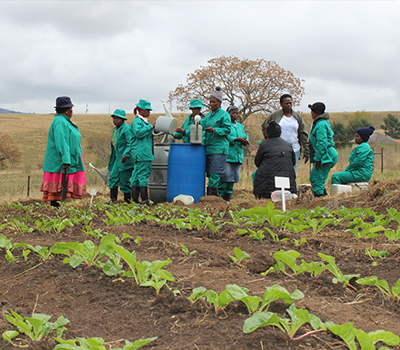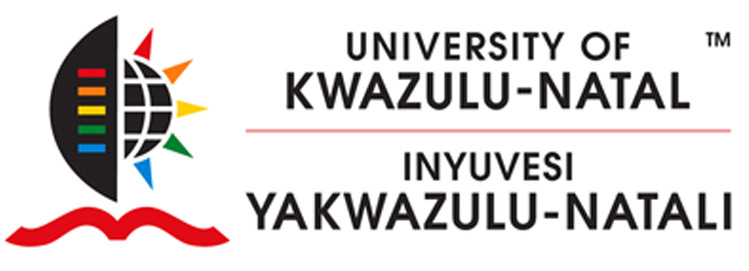UKZN Farmer Support Group Reaching Rural Communities in KZN

Caption to be submitted.
UKZN’s Farmer Support Group has been actively involved with rural communities, especially with women and youth in Msinga, in northern KwaZulu-Natal through the support of donor, DKA Austria.
Farmer Support Group (FSG), a community development and outreach unit of UKZN, implements participatory action research projects with rural community members. They also implement projects with resource-poor farmers in sustainable agriculture, food security, natural resource management, institutional development and entrepreneurship in areas around KwaZulu-Natal.
FSG was established in 1985 in the Department of Plant Pathology of the, then, University of Natal, with the aim of making relevant scientific knowledge available to smallholder farmers. They have since then worked in KwaZulu-Natal communities to enhance food security and sustainable livelihoods amongst rural farmers, especially involving female and youth. The work seeks to upscale interventions through a farmer-to-farmer learning approach.
FSG’s three decades of experience in working with rural communities in the province has contributed to smallholder farmers’ capacity development in agricultural production and participation in the value chain in the face of climate change.
“DKA Austria was referred to FSG through a previous donor, HEKS-EPER Foundation. DKA sought to partner with FSG to work on food security projects in Msinga. In 2011, DKA representatives from Austria visited FSG sites in Msinga to understand the plight of poverty and inequality issues that are dominant particularly with female-headed households,” Avrashka Sahadeva, FSG researcher and project coordinator, from UKZN’s School of Agriculture, Earth, and Environmental Sciences.
DKA has been in partnership with FSG since 2012.
“Funding received from DKA allowed FSG to be more involved with rural communities, especially women and youth, in Msinga. DKA does not fund for direct research, rather action oriented outcomes. FSG uses the funds to provide smallholder farmers with training, advice and project support, which ranges from organic and indigenous gardening to integrating within the agro value-chain. This ultimately enhances the capacity of rural people to improve their livelihoods, food security and access to additional sources of income through agricultural activities. This action-oriented work allowed FSG to provide a platform for researchers, postgrads, and academics to conduct relevant research that benefit the people of Msinga. Any research findings are presented to communities, which FSG ensures the work is translated and implemented with communities through the DKA funded work,” said Sahadeva.
FSG is currently involved in projects on mobilising rural communities, especially with women and youth, to provide an enabling environment for an active and vibrant civil society through the creation of structured platforms at group, ward, and municipal levels.
Multifaceted platforms are being created, such as local farmer leadership structures, which allow local communities to effectively interact with governmental and non-governmental stakeholders resulting in the articulation of issues that respond to their needs. Additionally, FSG will focus on integrating rural communities into the value-chain for improved livelihoods.
Words: Taschica Pillay
Inspiring Greatness
© University of KwaZulu-Natal: All Rights Reserved






